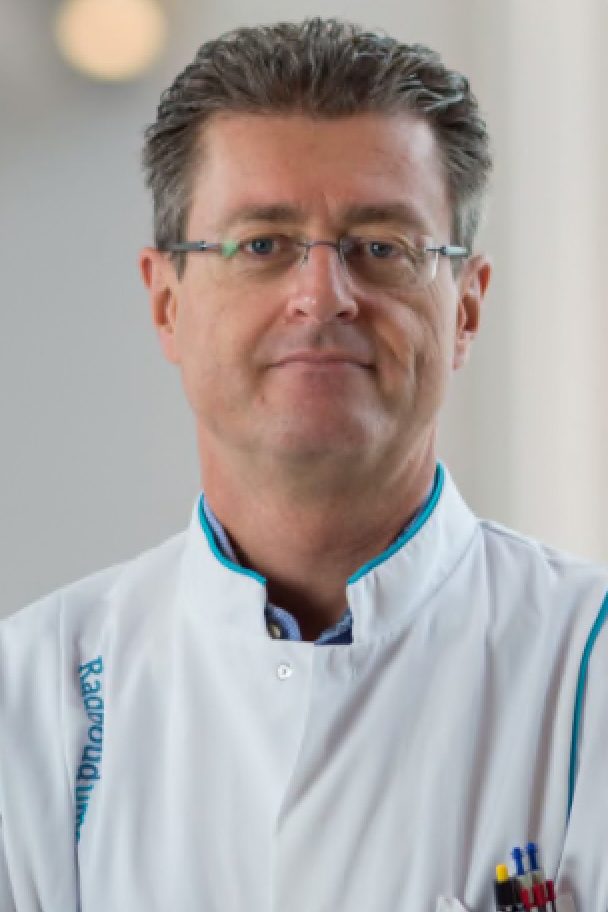Project title: NETcure—shine new light on neuroendocrine tumor therapy
Martin Gotthardt, PhD Radboud University, Netherlands

- Status: Completed
- Year(s): 2019
- Grant Type: Investigator
- Research Type: Clinical
- Area of Inquiry: Diagnostic
- Also seen in March 2021 eUpdate
General Description
An international collaboration in Spain and the Netherlands will explore photodynamic therapy. The team will develop a “photosensitizer,” which is a molecule that upon activation with light induces cell death. The photosensitizer will be coupled to peptides that bind to NET cells and tested for its ability to kill them.
Outcomes:
Currently, the cornerstone of treatment of patients with neuroendocrine tumors is surgery. To aid the surgeon in resecting all tumor cells in a minimally invasive manner, we have developed molecules that can be used in an approach named tumor targeted photodynamic therapy. In this approach, a molecule named a photosensitizer is brought specifically to the tumor cells. There, it can be activated with laser-light, upon which the photosensitizer produces the toxic reactive oxygen species. These reactive oxygen species induce cell death of the tumor cell.
In this project funded by NETRF, we have successfully developed molecules that can be implemented in targeted photodynamic therapy of neuroendocrine tumors. These molecules will have to be characterized further in animal models, to assess what dose (such as light dose or dose of the molecule) is the most optimal. Alterations to the photosensitizers could make them more suitable to coupling to small targeting molecules. Ultimately, one of these molecules could be developed for translation into clinical practice.
Additional Details
- City: Nijmegen
- Grant Duration: 2 years
DISCLAIMER
NETRF funds laboratory research to understand the development of neuroendocrine tumors and translational research to explore new concepts in treatment. Research grant descriptions and research updates from NETRF are not intended to serve as medical advice. It can take years for research discoveries to be fully validated and approved for patient care. Always consult your health care providers about your treatment options.
